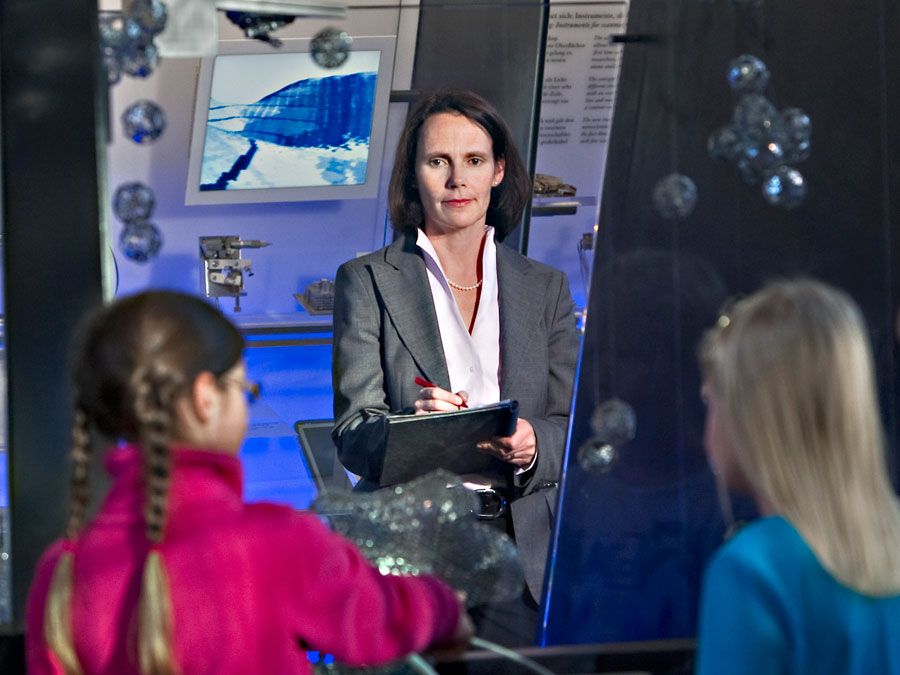Minister of Science honors civil engineer and educational researcher
Teaching Excellence Prize awarded to Philipp Dietsch and Doris Lewalter

"The nice thing about our subject is that we can hold the results in our hands," says Dr. Philipp Dietsch, lecturer at the Chair of Timber Structures and Building Construction. With samples and models, on excursions and in the lab, Dietsch's passion for his subject is quickly communicated to his students. They have repeatedly selected him as a winner of the "Doce et Delecta" teaching prize of the Department of Civil, Geo and Environmental Engineering. And when the laboratory is not big enough to accommodate 300 students, Dietsch films the experiments and shows them in the lecture hall. To date he has initiated about 50 videos on the properties of timber components, in some cases working with a high-speed camera. His films are now being used at universities in other countries.
As well as planning his own lectures and lab sessions, Dietsch organizes the courses in timber construction along with areas of the subject of building construction. He is firmly convinced that, apart from enthusiasm, good teaching means challenging the students. He therefore calls on the future civil engineers and architects to produce more than just design concepts. They are also expected to draft implementation-ready plans. "At first the students aren't thrilled with all of the planning work," says Dietsch. "But afterwards they admit that there weren't many classes where they learned so much."
"What can I use later in the classroom?"
At the TUM School of Education, future teachers learn about good school teaching and how it functions. But there's no such thing as the one and only right way for applying the theory afterwards in the classroom. "The students need to ask themselves: How can I, personally, make use of what I have learned?" says Prof. Doris Lewalter. An example: "We teach them that their pupils should also learn on their own. But the teachers have to know for themselves: How much autonomy can I give them before it becomes too stressful for me?"
To help her students to individualize their teaching, Doris Lewalter has created a "lecture seminar" concept: Immediately after a lecture segment, the students have the opportunity to engage in self-reflection. They perform role plays, analyze problems from previous internships or think about experiences from their own school days. "The goal is to give the students the opportunity to develop their own identity with respect to their future profession."
Lewalter is also currently spearheading the development of the "Toolbox: teaching and learning in the digital age". The goal of the project is for teaching materials covering all phases of teacher training to be made available online to all universities.
Prize endowed with €5,000
The Prize for Excellence in Teaching at Bavarian Universities („Preis für gute Lehre an den staatlichen Universitäten in Bayern“) was awarded today to 15 researchers by Dr. Ludwig Spaenle, the Bavarian Minister of Science. It is endowed with €5,000.